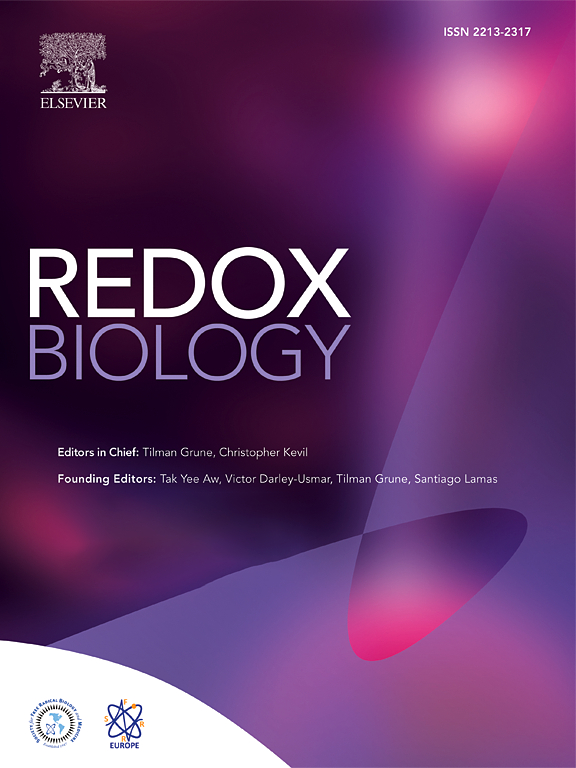Desflurane attenuates renal ischemia-reperfusion injury by modulating ITGB1/CD9 and reducing oxidative stress in tubular epithelial cells
IF 10.7
1区 生物学
Q1 BIOCHEMISTRY & MOLECULAR BIOLOGY
引用次数: 0
Abstract
Objective
Renal ischemia-reperfusion (I/R) injury triggers significant oxidative stress and inflammation, leading to tubular epithelial cell (TEC) damage. This study investigates the protective role of Desflurane (DFE) in renal I/R by modulating the ITGB1/CD9 signaling pathway and mitigating oxidative damage.
Methods
Single-cell RNA sequencing (scRNA-seq) and transcriptome analysis identified ITGB1 as a key regulatory gene in TECs during renal I/R. The effects of DFE on ITGB1/CD9 expression were evaluated through in vitro experiments using RT-qPCR, Western blot, and TUNEL assays. A mouse model of renal I/R was employed to assess renal function and oxidative stress markers under DFE treatment.
Results
DFE reduced ITGB1 and CD9 expression, resulting in decreased TEC apoptosis and enhanced proliferation. In vivo, DFE-treated mice exhibited improved renal function, with significantly lower serum creatinine and blood urea nitrogen (BUN) levels. Additionally, DFE reduced oxidative stress, as indicated by decreased malondialdehyde (MDA) and myeloperoxidase (MPO) activity, alongside increased superoxide dismutase (SOD) activity.
Conclusion
DFE confers renal protection against I/R by modulating the ITGB1/CD9 axis and reducing oxidative stress, offering a promising therapeutic strategy for mitigating kidney damage.
求助全文
约1分钟内获得全文
求助全文
来源期刊

Redox Biology
BIOCHEMISTRY & MOLECULAR BIOLOGY-
CiteScore
19.90
自引率
3.50%
发文量
318
审稿时长
25 days
期刊介绍:
Redox Biology is the official journal of the Society for Redox Biology and Medicine and the Society for Free Radical Research-Europe. It is also affiliated with the International Society for Free Radical Research (SFRRI). This journal serves as a platform for publishing pioneering research, innovative methods, and comprehensive review articles in the field of redox biology, encompassing both health and disease.
Redox Biology welcomes various forms of contributions, including research articles (short or full communications), methods, mini-reviews, and commentaries. Through its diverse range of published content, Redox Biology aims to foster advancements and insights in the understanding of redox biology and its implications.
 求助内容:
求助内容: 应助结果提醒方式:
应助结果提醒方式:


